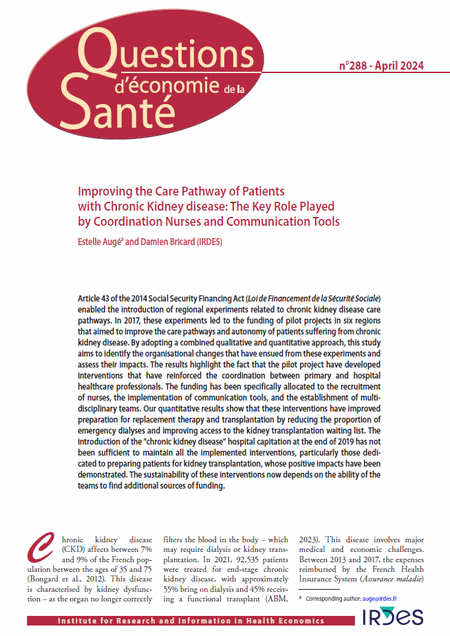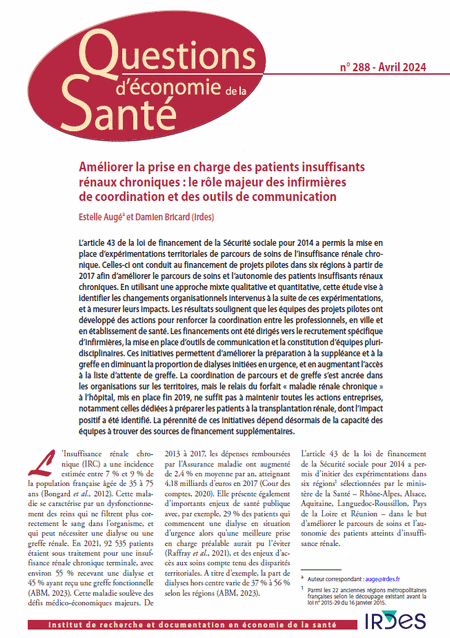Improving the Care Pathway of Patients with Chronic Kidney Disease: The Key Role Played by Coordination Nurses and Communication Tools
Augé E. and Bricard D. (IRDES)
Questions d'économie de la santé (Issues in Health Economics) n° 288 - April 2024
ABSTRACT
Article 43 of the 2014 Social Security Financing Act (Loi de Financement de la Sécurité Sociale) enabled the introduction of regional experiments related to chronic kidney disease care pathways. In 2017, these experiments led to the funding of pilot projects in six regions that aimed to improve the care pathways and autonomy of patients suffering from chronic kidney disease. By adopting a combined qualitative and quantitative approach, this study aims to identify the organisational changes that have ensued from these experiments and assess their impacts. The results highlight the fact that the pilot project have developed interventions that have reinforced the coordination between primary and hospital healthcare professionals. The funding has been specifically allocated to the recruitment of nurses, the implementation of communication tools, and the establishment of multidisciplinary teams. Our quantitative results show that these interventions have improved preparation for replacement therapy and transplantation by reducing the proportion of emergency dialyses and improving access to the kidney transplantation waiting list. The introduction of the "chronic kidney disease" hospital capitation at the end of 2019 has not been sufficient to maintain all the implemented interventions, particularly those dedicated to preparing patients for kidney transplantation, whose positive impacts have been demonstrated. The sustainability of these interventions now depends on the ability of the teams to find additional sources of funding.
See also Questions d'économie de la santé n° 288 in French: Améliorer la prise en charge des patients insuffisants rénaux chroniques : le rôle majeur des infirmières de coordination et des outils de communication.

